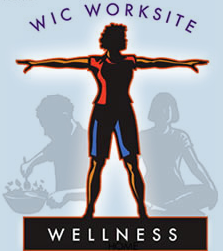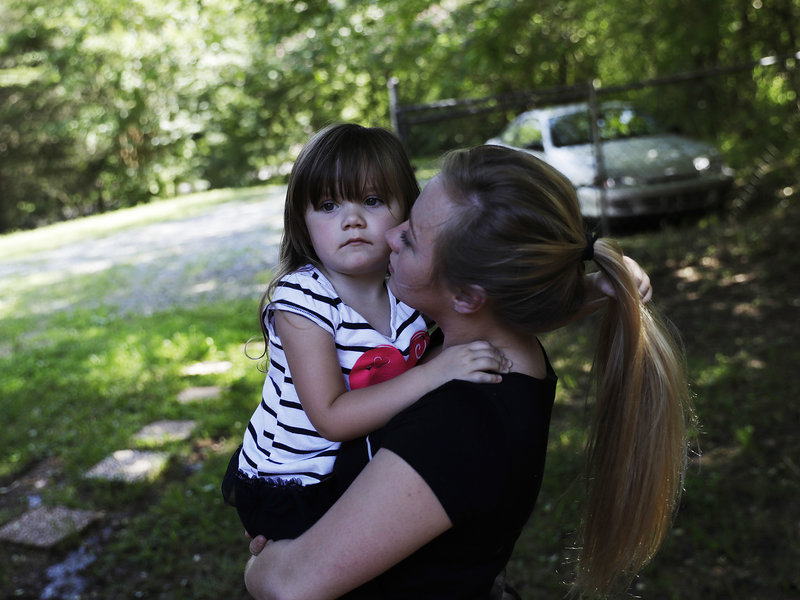|
CalFresh: Better Food for Better Living!
CalFresh, California's name for food stamps or the Supplemental Nutrition Assistance Program (SNAP), can add to many WIC families' food budgets and help them put healthy and nutritious food on the table. WIC Can Help by encouraging WIC participants to apply for CalFresh benefits by referring them to the online and in-person resources.
|

Practicing Loving Kindness!
Thinking loving and kind thoughts of oneself, our loved ones and even of those with whom we are more challenged, is a way to
displace hatred and feel good will and benevolence. Loving kindness can be a way of daily life and also a type of meditation.
|
Shopping at Amazon?
Support CWA without spending anything extra by using
AmazonSmile!
|
Did someone share this with you? Sign up here to get the CWA Flash directly!
|
|
 |
|

Tricare Adds Coverage for Human Breast Milk, Limits Pump Supplies
For the first time,
Tricare
, the healthcare plan for military personnel, is covering the purchase of human breast milk from an accredited milk bank. The new coverage, which is retroactive to Jan. 1, could save mothers of premature or sick infants thousands of dollars if their baby requires breastmilk but they are unable to provide it. Donor breast milk can be lifesaving for infants born preterm or with a variety of health conditions, but if their mothers are unable to provide it, the costs can be daunting - breast milk purchased without insurance coverage can cost up to $5 an ounce. Under the new Tricare policy, no beneficiary will pay more than about $1.12 per ounce, while many will pay nothing. The new coverage comes with another lactation-related Tricare update, to exclude coverage of "luxury" breast pumps, such as those with smartphone connectivity and expanded rechargeable batteries, and limit coverage of breast pump supply kits to one per birth event.
|
Conference Countdown!
Three weeks from now we'll be rocking the house at CWA's 27th annual Conference and Trade Show,
Catch the Wave: WIC Moves Families Forward
, April 28-May 1. We look forward to a packed few days of professional education, networking, inspiration and fun! Be sure to check the
final agenda
, get your friends together for
our first ever trivia night
, and plan how you'll earn professional education units as a RN, RD, IBCLC or other lactation provider. Bring your exercise clothes and catch a class in Zumba, self-defense, yoga or tai chi- it is a Well WIC Conference! ACTION: Follow us on
Instagram
and
Facebook
and register your team for our
CWA Go!
Competition. You or your team can register on-site!
|

"Prescribing" Fresh Produce Could Save $100 Billion in Healthcare Costs
A new study
from Tufts University finds "prescriptions" for healthy foods could save more than $100 billion in healthcare costs and
prevent millions of cases of chronic diseases
, which account for roughly 86 percent of annual healthcare costs in the United States. The study followed adults between the ages of 35-80 who were enrolled in Medicare and/or Medicaid. It placed participants into two groups: one in which Medicare/Medicaid covered the cost of 30% of fruits and vegetables, the other in which it covered fruits, vegetables, seafood, whole grains, plant oils, and other healthy foods. The first scenario would prevent 1.93 million cardiovascular events (such as heart attacks) and 350,000 deaths, as well as cut healthcare costs by $40 billion. The expanded second scenario would prevent 3.28 million cardiovascular events, 620,000 deaths, and 120,000 cases of diabetes-and save the U.S. system a whopping $100 billion. Food as medicine has been advocated across the healthcare and wellness industries. Last year, the 2018 Farm Bill included a $25 million Produce Prescription Program to fund pilot projects that institute healthier foods. For those attending the CWA conference, you can catch a workshop on Food as Medicine.
|

Judge Blocks Medicaid Work Requirements in AR and KY
Last week a
federal judge threw out Medicaid work requirements
in two states, rejecting for a second time Kentucky's attempt to
require recipients to work
or volunteer as a condition of coverage and blocking a similar rule in Arkansas, which has resulted in more than 18,000 people there losing coverage since last summer. So far, the Trump administration has allowed eight states to begin requiring many of their Medicaid recipients to work, volunteer or train for a job to be eligible for benefits. Seven other states are seeking permission from the Department of Health and Human Services to impose similar rules. Judge Boasberg noted in his decisions that work requirements would not be helpful in furnishing medical assistance to the residents of the two states, a central objective of Medicaid. The other states that have won federal approval for Medicaid work requirements are Arizona, Indiana, Michigan, New Hampshire, Ohio and Wisconsin. New Hampshire's requirement, the next to take effect, is the subject of a third lawsuit, filed last week.
|

Foster Care Rate Rises
The number of children and youth in foster care nationally rose for the fifth consecutive year, to 443,000, in federal fiscal year 2017. The number is a 12 percent increase from FY 2012, when the number of children and youth in care began rising after more than 10 years of decline. Child Trends state-by-state data show that most states (39) experienced an increase from FY 2016 in the rate of children and young people in foster care. These rates range from a low of 2.5 per 1,000 children in Virginia to a high of 17.8 per 1,000 in West Virginia. Wonder what is going on in CA for foster care policy and advocacy? The Child Welfare Policy Roundtable, convened by Children Now and the Assembly Foster Care Select Committee, is leading work on the complex issues.
|
USDA Research on Economic Impacts of Breastfeeding
|
Travel Recommendations from CDC for Nursing Families
|
Trends in Breastfeeding Policies
The journal Breastfeeding Medicine has published an article titled "
Trends in Hospital Breastfeeding Policies in the United States from 2009-2015: Results from the Maternity Practices in Infant Nutrition and Care Survey
," (MPINC) describing a study to determine the trends of model policies and receipt of free infant formula among hospitals with maternity care in the United States. The study found that the proportion of hospitals with a model breastfeeding policy increased from 14.1% in 2009 to 33.1% in 2015. More hospitals incorporated policy elements on limited use of pacifiers, early initiation of breastfeeding, and limiting non-breast milk feeds of breastfed infants. While more hospitals in the United States are implementing model breastfeeding policies and not receiving free infant formula, the majority still do not adhere to these practices.
|
|
|